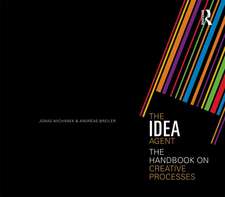Challenging the Innovation Paradigm: Routledge Studies in Technology, Work and Organizations
Editat de Karl-Erik Sveiby, Pernilla Gripenberg, Beata Segercrantzen Limba Engleză Paperback – 3 sep 2015
This book analyzes the dominant discourses that construct and reconstruct the assumptions and one-sidedness of contemporary innovation research (generally known as the pro-innovation bias) by focusing on consequences of innovation, distinguishing between intended and unintended as well as desirable and undesirable consequences. Contributors illustrate how both the discourses of innovation and the consequences of innovation permeate all levels of society: in policy discourse, in academic discourse, in research funding, in national innovation systems, in the financial sector, in organizational and work contexts, and in environmental pollution. The volume offers a critical, multidisciplinary, and multinational perspective on the topic, with authors from diverse academic fields examining and making comparisons between a variety of national contexts.
| Toate formatele și edițiile | Preț | Express |
|---|---|---|
| Paperback (1) | 426.96 lei 6-8 săpt. | |
| Taylor & Francis – 3 sep 2015 | 426.96 lei 6-8 săpt. | |
| Hardback (1) | 1045.03 lei 6-8 săpt. | |
| Taylor & Francis – 3 apr 2012 | 1045.03 lei 6-8 săpt. |
Preț: 426.96 lei
Nou
Puncte Express: 640
Preț estimativ în valută:
81.71€ • 85.33$ • 67.75£
81.71€ • 85.33$ • 67.75£
Carte tipărită la comandă
Livrare economică 11-25 februarie 25
Preluare comenzi: 021 569.72.76
Specificații
ISBN-13: 9781138959880
ISBN-10: 113895988X
Pagini: 272
Ilustrații: 35 black & white illustrations, 18 black & white tables, 14 black & white halftones, 3 black & white line drawings
Dimensiuni: 152 x 229 x 22 mm
Greutate: 0.41 kg
Ediția:1
Editura: Taylor & Francis
Colecția Routledge
Seria Routledge Studies in Technology, Work and Organizations
Locul publicării:Oxford, United Kingdom
ISBN-10: 113895988X
Pagini: 272
Ilustrații: 35 black & white illustrations, 18 black & white tables, 14 black & white halftones, 3 black & white line drawings
Dimensiuni: 152 x 229 x 22 mm
Greutate: 0.41 kg
Ediția:1
Editura: Taylor & Francis
Colecția Routledge
Seria Routledge Studies in Technology, Work and Organizations
Locul publicării:Oxford, United Kingdom
Public țintă
Postgraduate, Professional, and UndergraduateCuprins
1. Challenging the Innovation Paradigm: The Prevailing Pro-Innovation Bias Pernilla Gripenberg, Karl-Erik Sveiby and Beata Segercrantz Part 1: Problematizing Innovation 2. On the Limits of What Can Be Said About ‘Innovation’: Interplay and Contrasts Between Academic and Policy Discourses Martin Fougère and Nancy Harding 3. καινοτομία: An Old Word for a New World, or the De-Contestation of a Political and Contested Concept Benoît Godin 4. The Unintended and Undesirable Consequences: Neglected by Innovation Research Karl-Erik Sveiby, Pernilla Gripenberg and Beata Segercrantz Part 2: Understanding the Systemic Nature of Innovation 5. Accelerating the Innovation Race: Do We Need Reflexive Brakes? Mervi Hasu, Karl-Heinz Leitner, Nikodemus Solitander and Urmas Varblane 6. Innovation and the Global Financial Crisis: Systemic Consequences of Incompetence Karl-Erik Sveiby 7. Weak Signals for Opting Out of the Innovation Race Karl-Heinz Leitner Part 3: Exploring Unintended Consequences of Innovation 8. Do Major Innovation Models Consider Unintended Consequences? A Review and Revised Framework Martin Lindell 9. From Autonomous Craftsmen to Compliant Resources: Implications for Undesirable Consequences of Innovation Beata Segercrantz 10. Organizational Innovations: An Exploratory Study of Negative Effects Almudena Cañibano, Oihana Basilio and M. Paloma Sánchez 11. Information and Communication Technology as an Exporter of CO2 Emissions Mitsutaka Matsumoto and Kotaro Kawajiri 12. Challenging the Innovation Paradigm: Conclusions, Practical Implications and Future Research Karl-Erik Sveiby, Pernilla Gripenberg and Beata Segercrantz. List of Contributors. Index
Descriere
The book goes behind the innovation frenzy characterizing society today. It brings attention to the commercial waste, policy ineffectiveness and human suffering caused by the way corporations have executed and policy makers have regulated innovation. It emphasizes the unexploited opportunities of approaches that consider also long term and undesirable consequences of innovation.




























